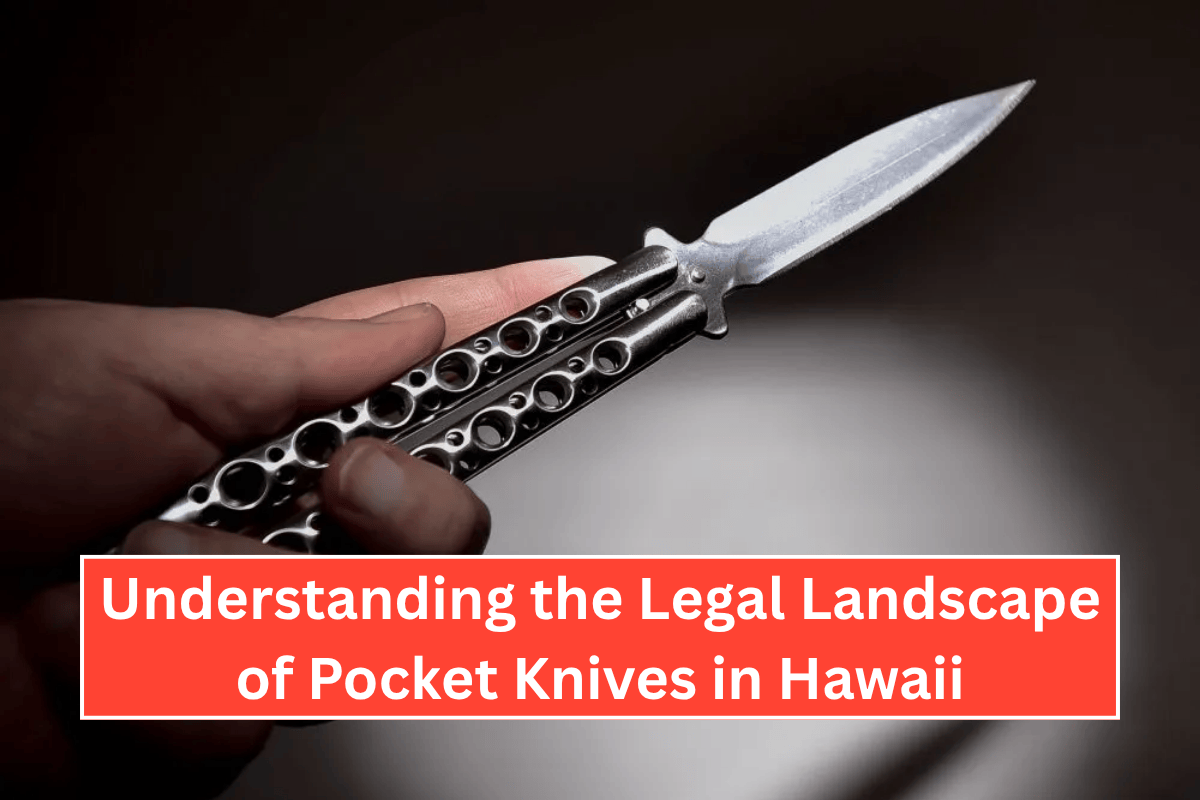In Hawaii, knife laws are designed to regulate the ownership, possession, and carrying of various knives to ensure public safety. These laws cover everything from types of knives that are legal to carry, to the specifics of open and concealed carry.
Whether you’re a knife enthusiast or someone who simply carries a pocket knife for everyday use, understanding these laws is important to avoid legal trouble. Here’s a breakdown of what you need to know about pocket knives in Hawaii.
Types of Knives
Legal Knives
Hawaii has recently updated its laws, and as of May 2024, individuals are allowed to own and possess a wide range of knives, including:
- Pocket knives: These are small, foldable knives commonly used for everyday tasks.
- Utility knives: These knives are designed for general-purpose tasks and often have replaceable blades.
- Hunting, fishing, and recreational knives: These are knives typically used in outdoor activities like hunting and fishing.
- Switchblade knives (automatic knives): These knives, which open automatically with the push of a button, are legal as of May 2024.
- Balisong (butterfly) knives: Known for their distinctive handle design, these knives are now legal in Hawaii as of May 2024.
- Gravity knives: Like switchblades, gravity knives are legal in Hawaii as of May 2024.
Illegal Knives
While the laws have relaxed regarding certain types of knives, using any knife in the commission of a crime remains illegal. For example, using a knife as a weapon in an assault or robbery will carry severe legal consequences, including potential additional penalties.
Carrying Laws
Open Carry
Hawaii allows the open carry of legal knives, including switchblades, balisong knives, and gravity knives. However, it’s crucial that these knives are not carried with the intention of using them unlawfully.
Open carry means that the knife is visible to others, but as long as the carrier has no intent to use it in a criminal act, it is permitted.
Concealed Carry
Concealed carry of knives in Hawaii is restricted. It is generally illegal to carry certain knives concealed on your person, including:
- Dirks and daggers: These are types of knives with pointed blades designed for thrusting.
- Knives with blades longer than 1.5 inches: Larger knives are generally prohibited from being carried concealed.
- Knives intended for unlawful use: Even if the knife is legal, carrying it with the intent to use it as a weapon is prohibited.
Restricted Locations
Even if you legally own a knife, there are certain locations in Hawaii where knives cannot be carried, regardless of whether they are carried openly or concealed. These restricted areas include:
- Schools and school grounds: Carrying knives at schools is prohibited.
- Government buildings: Knives are not allowed in these locations.
- Airports and secured areas: As with most places, airports have strict regulations against carrying knives.
- Public gatherings or events: There may be additional rules at public events that prohibit knives.
Law Enforcement or Military Exceptions
Certain individuals, such as law enforcement officers and military personnel, may have exemptions from some of these knife laws. These exemptions typically apply when they are acting in the course of their official duties.
For example, police officers may carry knives that civilians are restricted from possessing.
Consequences of Law Violation
If you violate knife laws in Hawaii, you may face serious consequences. Depending on the nature of the violation, these consequences may include:
- Misdemeanor or felony charges: Violations may result in criminal charges, with more severe penalties for more serious offenses.
- Fines: You may be required to pay fines if you are caught violating knife laws.
- Possible incarceration: In some cases, violations can lead to jail time, particularly if the violation involves a criminal act like using the knife in an assault.
As of May 2024, Hawaii has updated its knife laws, making it legal to possess and openly carry switchblade knives, balisong knives, and gravity knives. However, the concealed carry of knives remains restricted, and using any knife unlawfully is still prohibited.
It’s essential for knife owners to stay informed about these laws, be aware of restricted locations, and always ensure they are carrying knives for lawful purposes only. By doing so, they can avoid legal issues and continue enjoying their knives in a safe and responsible way.












